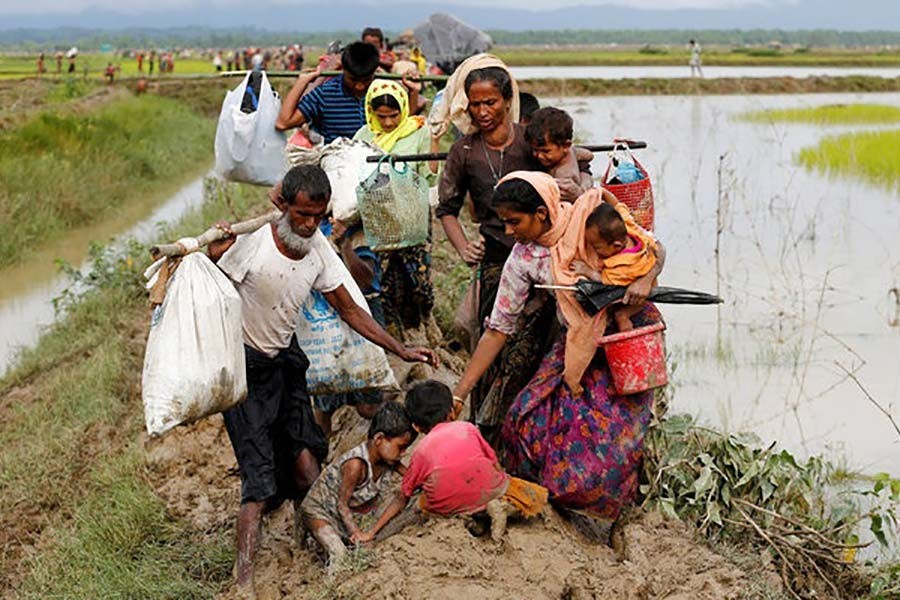Farmers living in Ukhiya and Teknaf of Cox's Bazar are getting support to improve nutrition for their families amid tremendous pressure of Rohingya influx.
The UN Food and Agriculture Organisation (FAO) and International Organisation for Migration (IOM) are implementing a farming initiative in this regard.
The US State Department's Bureau of Population, Refugees and Migration (PRM) is supporting the project to bring new opportunities for families living on the Bangladesh-Myanmar border, IOM said on Wednesday.
A 35-year-old small-scale farmer, Ayesha Begum, is one of the beneficiaries of the initiative.
She has got a new mechanical power tiller as part of a US$ 3 million programme to support agricultural livelihoods and forestry in the area.
"I used to plough my land with a spade. This will make it much easier," said Ayesha Begum.
"I can grow more produce and sell some at market and use some myself. It will bring a little profit, but if people can buy things from me at a good price and live better, that will make me happy," she added.
Like Ayesha's machine, dozens are being given to 24 community agricultural associations in the Teknaf and Ukhiya.
Farmers involved in the project are also receiving seeds to produce high-nutrient vegetables, such as spinach and amaranth.
They are getting high-efficiency water pumps and organic fertilizer to reduce exposure to harmful chemicals.
In the past six months, almost 700,000 Rohingya refugees have fled violence in Myanmar.
Since the influx began, local residents in the Cox's Bazar have been struggling with major challenges from overstretched infrastructure to major hikes in food prices.
Mohammad Abul Kalam, Commissioner of the Refugee Relief and Repatriation Commission in Cox's Bazar, said like agriculture, education, health, and community infrastructure are under tremendous pressure because of Rohingya influx.
"Thanks to IOM and FAO, this (project) is aimed at compensating some of the losses suffered by farmers in Ukhiya and Teknaf," he added.
Peter Agnew, FAO's Emergency Response Coordinator in Cox's Bazar, said that the initiative aims to provide nutritious food, increase income and improve the quality of life for everyone in this area.
This is part of a five-year project with the agriculture and forestry departments, which will also include regeneration of the local forest," said Peter Agnew.
Manuel Pereira, IOM Emergency Coordinator in Cox's Bazar, said the host community in this area has extended a very generous welcome to the refugees in their time of need.
"However, there's no doubt that the sudden and rapid arrival of almost 700,000 people in the past six months have added further pressure on the local population and infrastructure," said Manuel Pereira.
According to UNB, the IOM official said such initiative would bring multiple benefits and forge positive interactions between them and the refugees.


